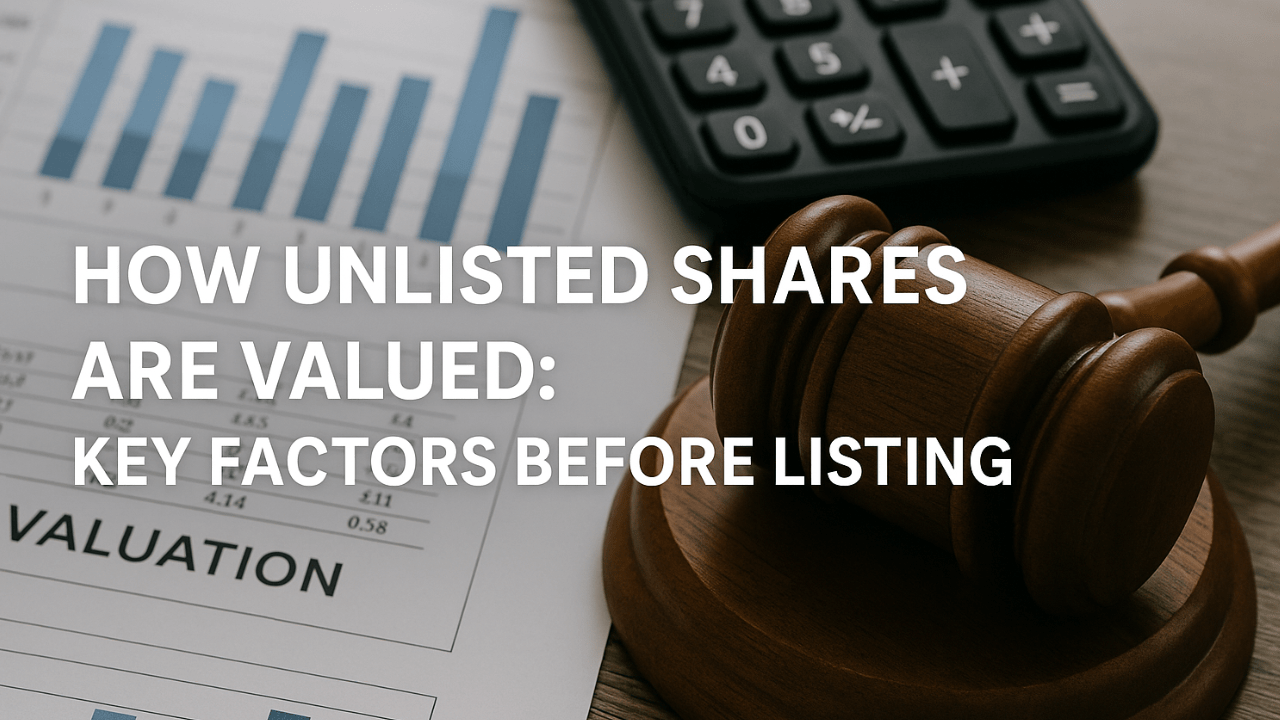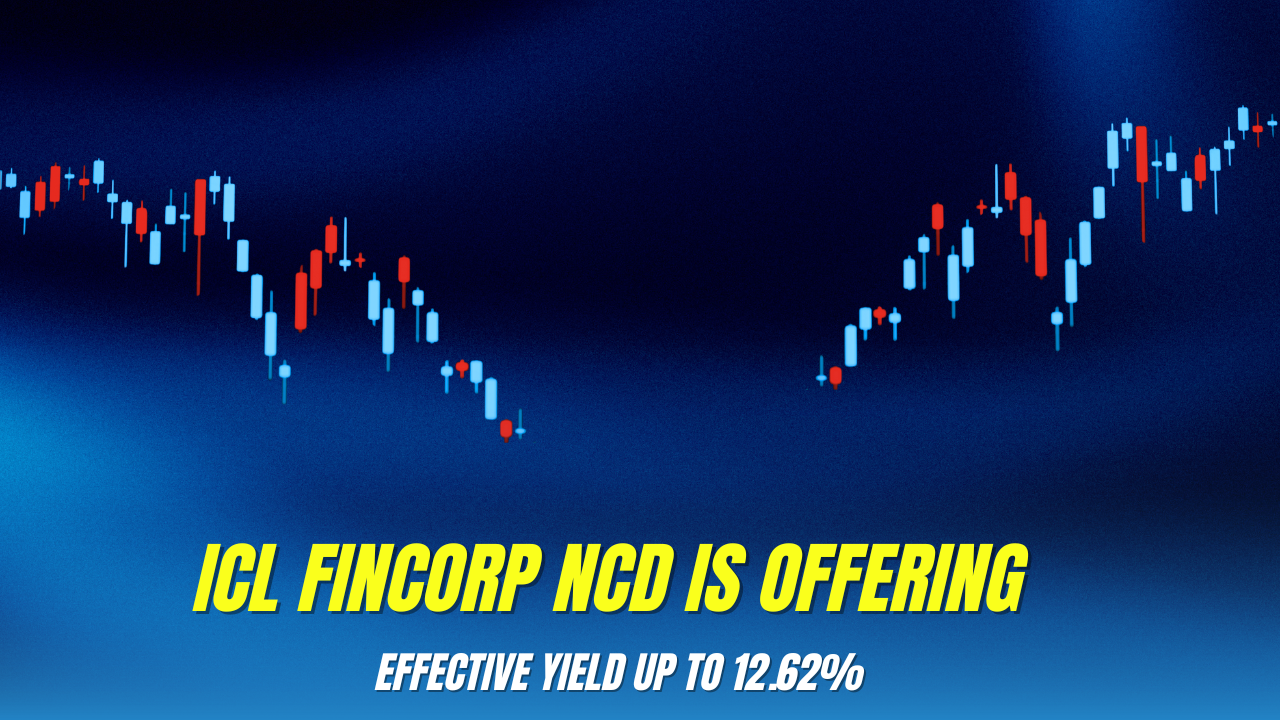In India’s rapidly changing investment environment, unlisted shares prior to IPOs are increasingly popular among retail and institutional investors alike. More companies are preparing to go public, and private market valuations are skyrocketing, so investors are trying to find opportunities to get in well before the listing hype starts.
Investors in the pre-IPO segment have the unique ability to acquire shares of potential high-growth companies at great prices well before their shares are listed on the stock exchange. This has, without a doubt, transformed the investing strategy of most wealthy individuals and private equity investors in the private market.
Unlisted Shares Before IPO: A Short Lesson
Unlisted shares are equity instruments of companies not listed on stock exchanges such as NSE or BSE. Unlisted shares are traded privately through authorized dealers, investment platforms, or intermediaries, and allow investors to be early participants in a company’s growth journey before it offers shares to the public.
There has been a recent surge in demand for Unlisted Shares among retail investors before an initial public offering (IPO). Unlisted shares are sought for the anticipated posting of the shares as well as the potential to generate long-term value.
Why Unlisted Shares are Popular Among Investors
1. Initial Investment Opportunity with High-Growth Firms
An advantage to investing in unlisted shares is the opportunity to back a prospective company before it goes public. Even before their public listings, pre-IPO companies like MSEI, and OYO have been attracting attention from savvy investors.
Because these investors secured contracts before the company went public, they purchased shares at a lower valuation, allowing the investors to gain significant returns as the company expanded their business.
2. Opportunity for Greater Returns
Generally, the valuation of a company increases to the extent of the public stock offerings due to the purchase and sale of company stock in the market. Investors who hold the unlisted shares prior to the IPO typically earn a significant return on their investment, especially when the IPO is oversubscribed.
However, due to the company fundamentals, timing, and market sentiment, the returns on unlisted shares will vary. This makes the research on the target company more vital.
3. Diversifying Investment Portfolios
With unlisted shares, an investor is presented with the opportunity to invest beyond standard stocks and mutual funds, which are the most common alternative investments.
As unlisted shares are not as subject to daily price market movements, they will assist in portfolio balance.
4. Investing in Pre-IPO Firms of Established and Revenue-Generating Firms
With pre-IPO firms like NSE, HDB Financial Services, which have proven business models, the investor in unlisted shares is backed by well-established and revenue-generating firms. At the same time, you are assured trust from investors.
This renders unlisted shares a comparatively lower-risk choice in the private equity segment.
5. Market Access and Convenience
In the past, only institutional investors had the ability to trade unlisted shares. Now, the availability of digital investment platforms has opened this opportunity to retail investors, who benefit from clear pricing and well-documented and compliant processes.
This increased opportunity is driving broad engagement in the unlisted shares prior to an IPO.
Factors that keep Unlisted Shares in Demand
Growing Pipeline of Upcoming IPOs
Upcoming IPOs from prominent and new companies have greatly increased investor interest. Many investors look at unlisted shares before IPOs as an opportunity to get involved with unlisted shares before IPO growth potential and growth trajectory of these companies to be listed.
Simplified Investment Process
Investing in unlisted shares has become even cleaner and streamlined more through verified digital platforms and their various offered services. Investors now have more access than before to detailed information about companies and documentation needed to build a case and justify interest in and potential participation.
Strong Performing Newly Listed Companies
Many newly listed companies that have strong performances post listing and have IPO’d success fuels investor interest to seek out and invest in pre IPO shares of companies. Success stories with large profitable listing gains serve to stronger justify and validate the worth of the earlier investments made that have been touted as gains.
Increased Interest the Unconventional
Investor’s new interest in unlisted shares as a recently grown available asset class provides an opportunity to break into different high growth industries, and access innovative business/unlisted models outside the traditional equities and mutual funds.
Enhanced Awareness and Understanding of the Market
Increased confidence in the media and having access to financial education materials, as well as having an understanding of the market, has resulted in an increased interest in pre-IPO investments. Such awareness to the extent is turning the unlisted share market into a serious investment segment.
Things to Keep In Mind before Investing in Unlisted Shares
Liquidity
Unlisted shares are less liquid than listed ones. Finding buyers or sellers might take time, especially prior to the IPO announcement.
Valuation
The prices of unlisted shares depend on demand, supply, and company performance, not day-to-day trading. To keep updated information it is advisable to check prices from verified sources.
Due Diligence
Before investing, fully assess the company’s financial position, its business model, and prospects for IPO. Initiate transactions only through reliable intermediaries.
Pros and Cons:
| S.no | Pros | Cons |
| 1 | It provides an early investment opportunity to the investors and gain from potential value growth. | Unlisted shares are difficult to sell quickly before listing. |
| 2 | It comes with high return potential and long-term appreciation. | There is uncertainty regarding valuation. |
| 3 | It provides ways to invest in the brands that are going to lead future markets. | There are certain regulatory constraints associated with it. |
Future Prospect of Unlisted Shares
The Indian unlisted share market is expanding at a fast pace, thanks to increasing startup valuations and interest from private equity investors, as well as momentum in IPOs. With leading companies getting ready to list, the appetite for pre-IPO shares is expected to grow stronger. With more information, digital platforms, and investor education on offer , unlisted shares are the investment you would expect every smart investor to be taking up.
Final Thoughts
Unlisted shares are a game-changer for the investors who are looking for something other than IPOs. It is a powerful tool that allows investors to participate at an early stage in a company’s growth journey.
With the help of trusted platforms and careful steps taken for long-term objectives, investors can easily bridge the gap between private equity and public listings.
FAQs
Q1-What does it mean to invest in unlisted shares before an IPO?
Buying shares of a company before they are listed on the stock exchange enables investors to receive early access to high growth before being available on the market.
Q2-What is the reason for the growing popularity of unlisted shares among investors?
Unlisted shares allow investors to participate in the company’s early development trajectory and profit from long-term growth potential and increased value following the company’s going public on an exchange.
Q3-How to buy unlisted shares before IPO?
Authorized intermediaries and trusted investment platforms like Delisted Stocks facilitate pre-IPO private share trading between sellers and buyers who want to buy and sell these shares.
Q4-How are unlisted shares different from listed shares?
Listed shares are publicly traded and listed on stock exchanges like NSE and BSE, whereas unlisted shares are exchanged privately in specialized platforms.
Q5-What are the primary benefits of investing in unlisted shares before an IPO?
Unlisted shares offer early investment opportunities, long-term profit potential, and the promise of joining one of the world’s best companies before their market debut.
Q6-What are the risk factors when investing in unlisted shares?
Limited liquidity, quoting size uncertainty, buying and reselling, and possible valuation are the principal drawbacks for buying such shares.
Q7-Can anyone buy unlisted shares? If so, what are the conditions?
Both retail and institutional investors can purchase it by completing the custodian paperwork and proceeding through a reliable exchange platform.
Q8-What should I check before investing in unlisted shares?
Prior to the transaction, check the company history, marketing, and growth potential. This information is critical to employ a safe and circumspect process to engage in trading.
Q9-How long should I keep unlisted shares?
The duration investors can hold an unlisted share depends on the company and the listing timeline. Many investors hold it until the IPO or even later.
Disclaimer
This article is for informational purposes only and should not be considered investment advice. Prices and data of unlisted shares are based on publicly available sources and may vary. Investors are advised to conduct independent research or consult financial professionals before making investment decisions.









